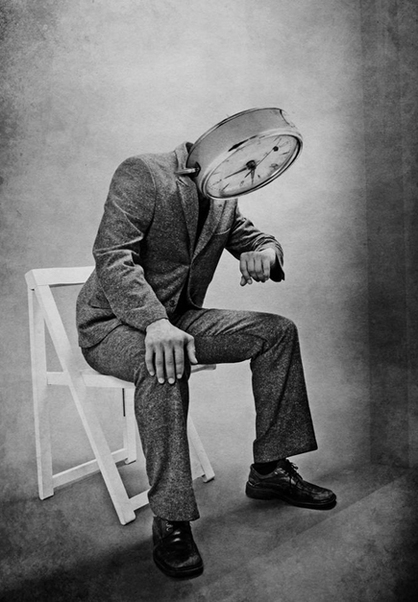
My teacher, Craig Cramer, told me once that at every performance he gives, he “goes up against the wall” or something of that nature. Since he is a professional concert giver this is quite a sweeping statement. He also told me that when he performs it is like riding a roller coaster and nothing like rehearsing the music.
I have discovered that when I put my all into a performance (which is something I try to do every time I perform) it exhilarates and drains me. At church this means I need to give my self a bit of conscious space between an intense prelude or choral piece and the next thing I do.
This summer I played a very intense prelude and played it pretty well. I plunged into the opening hymn and made some pretty silly and obvious mistakes. I think I was still recovering from the performance.
Since then I have been trying to work with myself a bit better than that. Yesterday was an example.
At ten minutes before the hour I decided I would begin the Stanford piece. When I timed it this week, it varied from 10.5 minutes to over 13 minutes. I worked over some of the sections before service yesterday, playing them carefully and well under tempo. I knew that I might play under tempo in the performance (if I kept my head on straight as I performed) and that this might affect the length of the piece.

Usually I tell my boss how long I expect the piece to last and she tells me when to begin. She likes to leak the prelude into the service time as people are still gathering at that point.
She was no where to be seen at ten to so I started.
I played the piece quite well. I finished at one minute after the hour. This often happens that I play a bit more quickly in performance since what I am thinking about is more interpretation or the music itself. I committed sins of omission rather than commission in a section or two and left out a few notes in some chords rather than ruin the lovely music. It’s a bit of a cop out, but I prefer it to screwing up a composer’s ideas entirely.
Stanford’s setting of his hymn tune Engelberg ends with a majestic statement of the melody as a climax of the entire piece. It was a great way to prepare the congregation to sing the opening hymn.
I finished the piece and realized I was feeling very deeply emotional and drained. I gave myself a moment to gather my thoughts and emotions before looking to my boss for her signal to begin the opening hymn. This helped.
I find this sort of thing pretty satisfying, playing a decent piece of music well.
I should mention I had some nice compliments. One parishioner thanked me for the music. This is pretty usual on a Sunday morning. I’m never sure quite what it means but try to be gracious and friendly.

Another young college age musician commented on the service music I have written. He said he saw the “Jenkins Jazz Mass” portions of the service coming and felt skeptical that the congregation could sing “jazz.” He reported being pleasantly surprised.
His father mentioned that both he and his son had been conversing about how well I played the organ. He did clarify that he meant my improvisations.
Yesterday at the wedding the one person who spoke to me said he liked the music I played when they signed the Marriage Certificate (an unusual addition to the ceremony). I thanked him and replied the melody I had been playing was an old hymn tune (Holy Manna) and I was just goofing around with it.

Once Jean Pierre Rampal was performing in a church situation which forbade applause. At the end of the concert, he left the playing area. When someone urged him to do an encore despite the lack of applause, he refused saying how did he know whether they liked it or not.
If someone of his ability and genius has that reaction, I think that in some small way I am justified when I assume that people don’t necessarily appreciate my work. But I do also remind myself that I receive my share of comments and compliments. Some do appreciate what I do. I need to remember that.
********************************************************************
Don’t Waste the Drought – NYTimes.com
I’m a bit behind in my online news reading. I have been using a different interface with the New York Times which allows me to browse articles better. This is slowing me down a bit. I like what this author says about learning from adversity and using it as an opportunity.
********************************************************************
In Texas University Holdings, Door to History and Culture – NYTimes.com
this article led me to this link:
The First Photograph – Overview
*********************************************************************
Georgia Student Newspaper Editors Quit, Claiming Interference – NYTimes.com
Good grief. I guess they’re trying to teach them how screwed up the whole journalistic situation is these days,eh?
********************************************************************

This blog looks pretty interesting to me.
********************************************************************
Egyptian Military Official’s Paper Criticized U.S. – NYTimes.com
Even though the paper in question was written when the official was at school seven years ago, it still has insights for an evolving situation in Egypt.
********************************************************************
China’s News Media Are Making Inroads in Africa – NYTimes.com
An obviously propaganda approach to news expanding. It fascinates me. Helpful to understand how much propaganda I am bombarded with in a freer press situation.
**********************************************************************
Syrian Conflict Imperils Historical Treasures – NYTimes.com
I know that the actual deaths are much more important. But I still bemoan the irrecoverable loss of historical buildings and stuff.
*********************************************************************